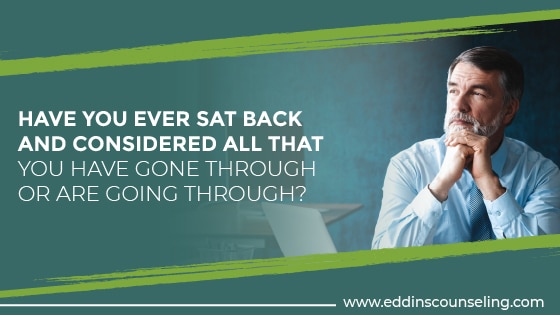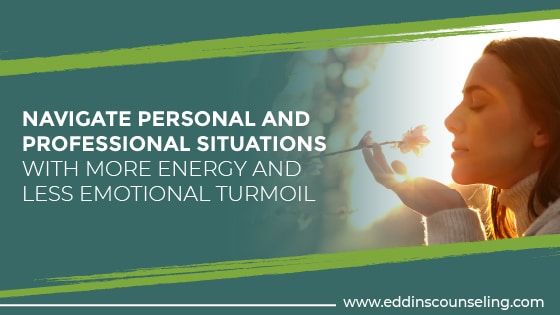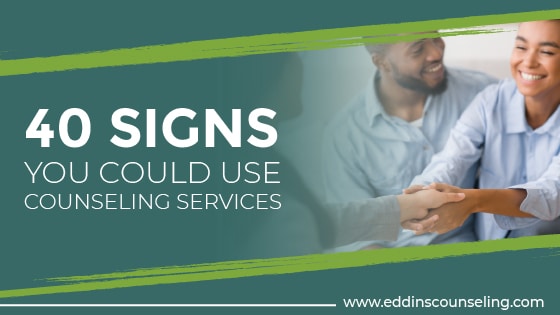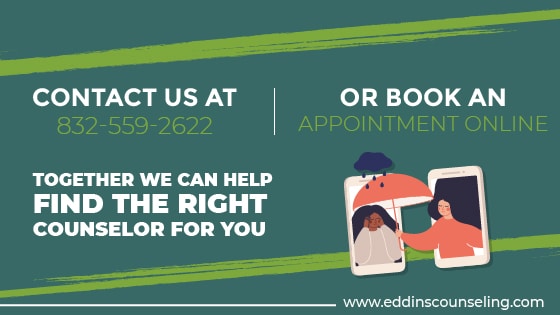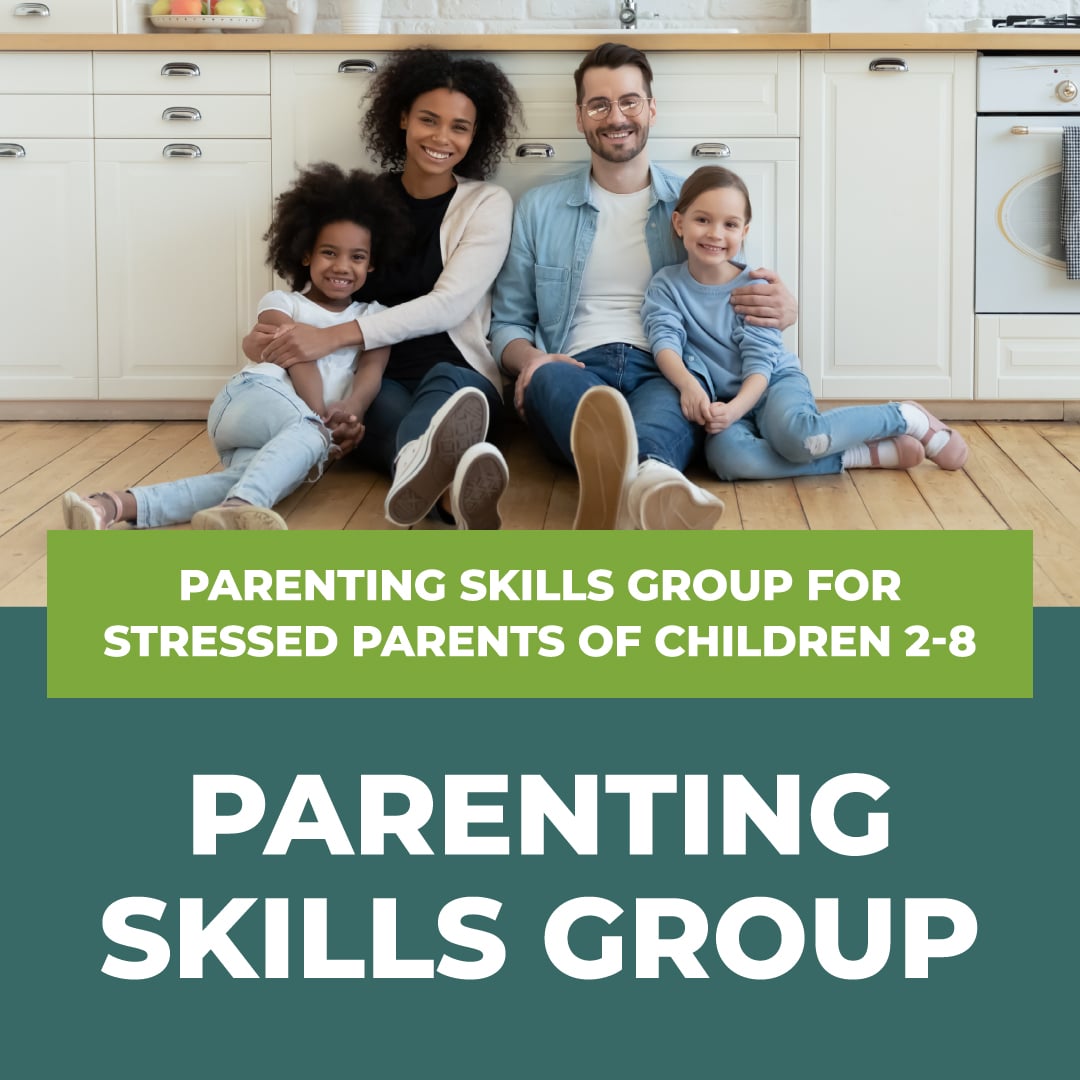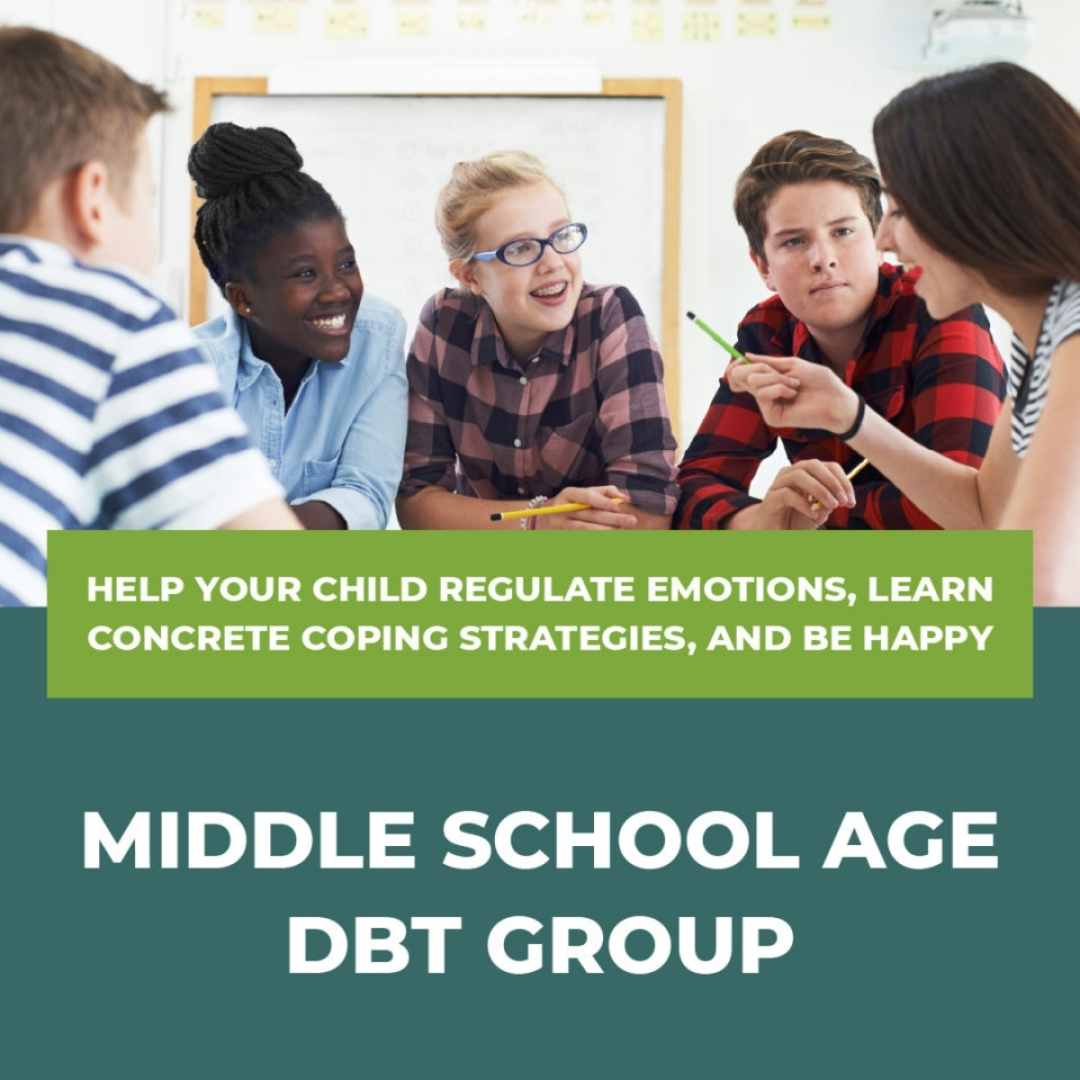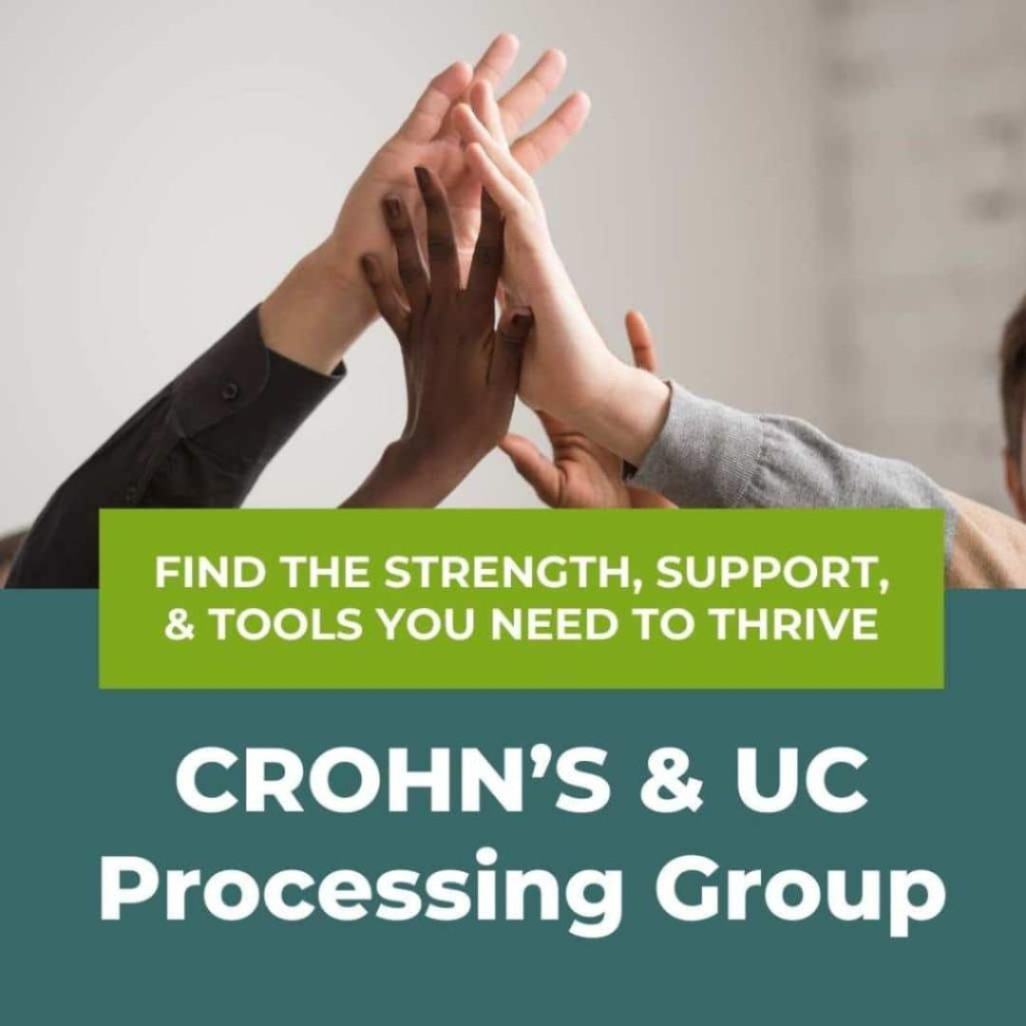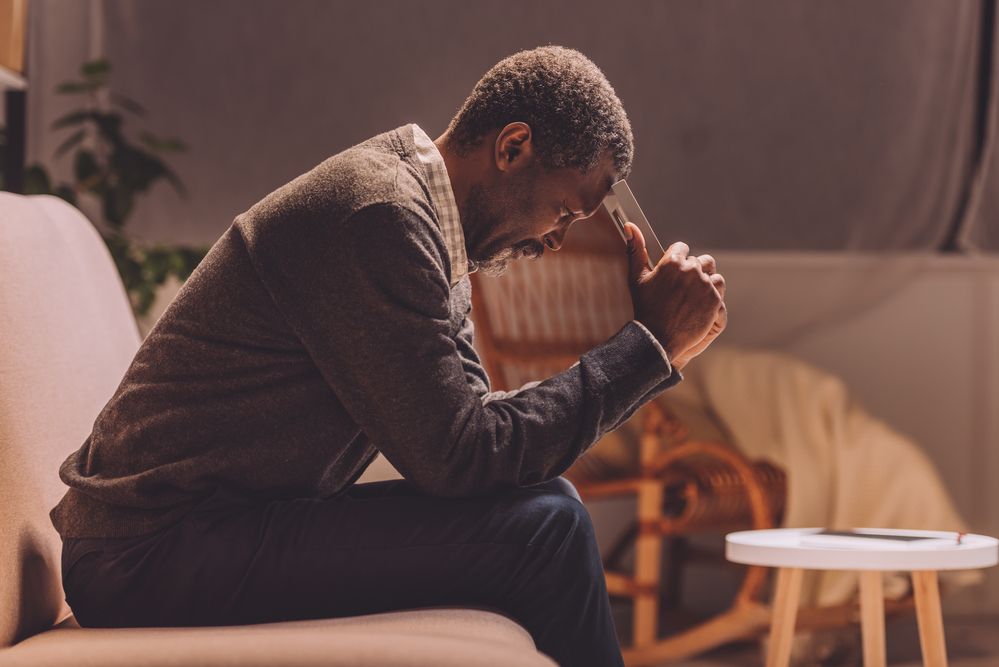July 26, 2021
Do I Need Therapy? Know When You NEED Counseling Services
Written by Sara Lane
Posted in Emotional & Mental Health and with tags: counselling, therapy, wellness

If we are honest with ourselves, everyone could use a bit of therapy.
Everyone has gone through something. You almost can’t be human without going through something.
So, if you ask, “Do I need therapy?” overwhelmingly, the answer is yes.
Thinking back to your childhood, you can probably see that your parents and caregivers had their own lives and issues.
No matter how present, loving, or understanding your parents were, they had life-altering situations come and go. They were human, too.
All of that living can leave little time for developing healthy coping skills and teaching how to maintain interpersonal relationships. This isn’t to say that therapy is primarily a supplement for whatever kind of parenting you got, but it is a kind of analysis.
Counseling services are a way to look at how you live your life to be sure that is actually how you want to be living it.
But What Is Counseling/Therapy?
Have you ever had space to explore who you are? Have you ever sat back and considered all that you have gone through or are going through?
Maybe with some good friends, you’ve had some deep conversations about life and what your experience has been. Your family is understanding, but they have challenges that often skew their view of yours.
More often than not, people are just left to figure it out as they go. But it doesn’t have to be that way.
Counseling is that place. You go and clarify your values and beliefs without the sway of outside influence. The question “how does that make you feel?” is often joked about, but when is the last time you asked that of yourself.
There are hundreds of decisions, big or small, that we make every day, but rarely is there a space for consideration, exploration, and support. To participate in counseling is to partake in self-exploration that you have likely not ever attempted.
Over time, clarity is often found concerning mental health issues, limiting beliefs, your career choices, and so much more. Additionally, a counselor can help with general life concerns and act as a sounding board without any stake in the game.
For example, when you ask your parent what you should do about XYZ, they likely have a specific opinion that steers you closer to their agenda.
This doesn’t always mean your parent is “out to get you” or manipulating you, but they might be emotionally involved in the situation’s outcome.
Why Are Counseling Services So Important?
Everything requires maintenance.
For instance, throughout your car’s life, you will have to put a good deal of work into it. Oil changes, new tires, and tuning up the engine are all different wear and tear elements that you address. The same concept applies to your body.
In one year, the average person sees a dentist and a doctor while getting help from a chiropractor, a physical therapist, and maybe even a dermatologist.
But, unless it’s an extraordinary situation, you have probably never given your mind, feelings, or thoughts that same level of care or consideration. That is where counseling comes in.
Your counselor understands that you can experience an incredible amount of emotions in one day, and those emotions impact our physical bodies, reactions, behaviors, and choices. That is a lot of power.
So, having a place to examine all of these factors and understand how they all come together is extremely important. Counseling is an incredible opportunity to learn from everything you have gone through and not put yourself through more.
Research has shown that participating in counseling or therapy, which are essentially the same thing, can contribute to increased self-respect, productivity, and communication in all sections of participants’ lives.
Because no matter what you find yourself going through, having the help of a therapist can open up opportunities and possibilities you didn’t know were available to you.
Why Do People Use Counseling Services?
Besides seeking plain old emotional awareness, the number of reasons people participate in therapy is endless. Your mental health situation is particular to you, and you are a unique person, so there isn’t one answer to this question.
Some reasons people seek counseling services include:
- Mental Health Maintenance
- Anxiety, Depression, Stress
- Dissatisfaction with Career, Career Changes
- Divorce
- Grief
- Disordered Eating
- Overwhelming Feelings, Destructive Behavioral Patterns
- Relationship Maintenance, Child and Family Issues
- Trauma and PTSD
- LGBTQ+ Concerns
- Insomnia and Health Issues
- Infertility, Pregnancy
There is this misconception that seeking the help of a mental health professional makes you weak or incapable of handling yourself or your life. No matter who you are or where you are from, we all have some force in our life that pushes this narrative.
“Discussing it won’t do any good.” “It’s no big deal.” “You just have to get over it.” Deep down, you know this isn’t true. And it’s not healthy.
Those who participate in therapy often have a leg up on life because they have information regarding the behavioral patterns that dictate their behavior. They learn new skills and identify possibilities for their future and unblock emotions which generally brings them a new awareness of themselves and a whole bunch of relief.
With this information, they can navigate personal and professional situations with more energy and less emotional turmoil, and they may even get what they require out of those situations.
Do I Need Therapy? Don’t Put It Off.
When people feel stuck is the most common circumstance that sends people to therapy, whether stuck in the patterns that hinder their functioning in their relationships or lives. They feel like there is nowhere else to turn with this issue because they have exhausted all other resources.
Things must be “really bad” before seeking help, no matter how horrible plain “bad” felt. Those who don’t address their concerns and feelings until they have reached a breaking point miss out on the satisfaction counseling services provide.
Usually, you just need a change of strategy.
To demonstrate this idea, we can look at a couple that has been married for 15 years. Since year seven, they have been having issues, and they started as “small things” and “misunderstandings.”
This couple has lived with problems swept under the run for over seven years, and only when one mentions, divorce do they seek help. In year seven, they could have met with a counselor and discovered that they had a communication issue and enjoyed the coming years with a stronger bond.
Do I Need Therapy? Short Answer = Probably.
- Are there things getting in the way of you living and enjoying your life?
- Have you noticed a feeling of dissatisfaction growing?
- Are you overwhelmed and worried?
- Is it becoming more and more challenging for you to make changes to your life that you want?
Whether in your career, your relationships, or within yourself, we all have work to do. But if you don’t have the tools, it’s very easy to become trapped in our patterns and limiting beliefs.
So, if you live with troubles that diminish your quality of life, then it is time to see a professional, which applies to those with aggressive mental health issues and those who don’t.
We all have an inner world, and we all have a balance we are working to achieve in our lives. If you ask yourself, “Do I need therapy?” then you should try it.
Allowing yourself the freedom and expression involved in a session of counseling is something that everyone should do.
Imagine your inner circle of friends and family; how much better would everyone’s life be if they simply had a better handle on that inner world. It would make a much more significant difference than we can even quantify.
How to Know When to Seek Counseling Services
Life can be hard, but when it is hard and actively getting harder, regardless of how our circumstances change, there may be something wrong. If you are considering seeking therapy, it probably isn’t for a mental health check-up. (If it is, congratulations, you are way ahead of the game!)
You have a sense that something is wrong in your life. Whether in relation to how you function or how you feel, you have detected a disturbance, and you shouldn’t ignore it.
There is nothing good that comes from that.
The following list is of signs you should see a therapist. Something to remember is that even though your situation is individual, you are not the only one feeling what you do. You aren’t needy for wanting to examine these feelings.
Take your time, journal, and deeply consider what you are experiencing. Your future self will be so glad that you did.
So, here are some signs you could use counseling services.
- A trauma has occurred, and you can’t stop thinking about it.
- You feel separated or detached from things you love.
- You are having a hard time functioning from day today. Your emotional state is affecting your performance at work or school.
- Substances are being used to cope or “unwind” by you or someone you care about.
- Your loved ones have expressed their concern.
- All of your interpersonal relationships are labored, and you have increased conflict in your relationships.
- Feelings you have are always intense, no matter what they are.
- Ailments like headaches and stomach aches are recurring; your immune system feels lagging.
- You find it hard to go to sleep at night or wake up too early in the mornings.
- You find your thoughts going over and over, so much so that others notice you’re no longer present.
- You feel down and not motivated, finding it hard to get the energy to do things you usually do.
- You don’t feel like yourself anymore.
- You experience a lot of negative thoughts.
- You feel stuck and find it difficult to make decisions.
- You feel unhappy most of the time.
- You worry all the time and are unable to find the solutions to your problems.
- You feel extremely sad and helpless.
- You feel nervous, anxious, and worried most of the time.
- You have panic attacks.
- You have a hard time concentrating.
- Your emotional state affects your daily life: your sleep, eating habits, job, and relationships.
- Your behavior is harmful to yourself or others.
- You are feeling impatient and angry with someone you are taking care of.
- You are the victim of sexual abuse or domestic violence.
- You have an eating disorder.
- You are having trouble getting over the death of someone you loved.
- You or someone you love has a serious illness, and you are having a hard time with it.
- You feel lonely and isolated.
- You are experience problems in a sexual relationship.
- Your family has a lot of conflict and tension.
- You are experiencing a divorce or marital separation.
- You have a hard time coping with change.
- You often feel afraid, angry, or guilty.
- You have a hard time setting and reaching goals.
- Your child is having problems with behavior or school performance.
- Your family is stressed because someone is ill.
- You have a hard time talking with your partner, children, parents, family members, friends, or coworkers.
- You are having problems dealing with your sexual orientation or the sexual orientation of someone you care about.
- You are planning to marry, and you may have some concerns.
- You have gotten a divorce, and your family needs help adjusting.
- You are part of a blended family and need help learning to live together.
As you can see, there is no “one” reason people seek counseling services, but any one of these issues can occur with any other. And there is no limit to the number of issues one might experience at any one time.
So, don’t be afraid to be honest about all that you are experiencing. The more honest you are, the more accessible healing becomes.
Before You Decide, Consider This
A therapist can help you, no matter what your situation is. Here’s how a qualified counselor can help you get past life’s most challenging periods.
Examine the Root Causes of Your Stress
We all have habits and patterns that we slip into during difficult situations. Maybe when you are stressed, you have a quick temper, or you have a drink to take off the edge at the end of a long day.
Another example would be when you are feeling sad or worried; you shut down. A therapist would help you examine negative behavior patterns and understand how they are hurting you and where they come from.
While you might assume that it’s normal to have stressful days, unhealthy habits can cover deeper issues. It may be that you’re unhappy in your job or your relationship and need to make a change.
A conversation with a counselor can help you find the deeper motivations for your stress.
Boost Your Productivity
Do you feel like you’re in a bit of a slump, personally and professionally? Maybe you notice that you’re just not getting as much done as you used to, and you aren’t sure why.
Seeing a local therapist can help you get a glimpse into what’s going on.
You might be suppressing unhappy memories that you don’t want to confront, or you are fighting off the need for change. Whatever the reason you’re not as productive as you once were, a counselor can help you find and fix the issue.
Counseling Services Make Your Relationships Better
Relationships can be tricky, but they don’t have to be. The health of your relationships has a significant impact on the rest of your life. But you can unintentionally sabotage your relationships in several ways.
You may use poor communication styles or sweep issues underneath the rug because you are too tired or you just don’t have the time. Maybe you’re keeping essential secrets from your spouse that you feel will jeopardize your relationship.
Whatever it is that you’re doing that’s impacting your relationship, a therapist can help.
Because of the patterns we get ourselves into, we have a harder and harder time seeing where our partners are coming from.
Something your therapist can do is essentially use their objectivity to translate, so you have been trying to tell your partner something as simple as the word “cat” for years, and they just don’t seem to get it. Your therapist will ultimately take in the word, look at your partner and the context of your relationship and say, “C-A-T, it’s a cat.”
Don’t be surprised if your partner turns to you, shocked, saying, “You were saying cat all this time?” Neutral third parties are like that and can make your relationship much, much better.
What is your relationship attachment style? Take this quiz and find out.
Help You Make Important Decisions
Chatting with your friend that you haven’t spoken to in months or even years can be so nice. Why is that?
Often, it’s because that person is close enough to know who all the characters are but far enough to have no stake in the game. They aren’t emotionally attached to the story or the outcome, and it can be very refreshing.
A counselor is like that but with a master’s degree in human behavior and mental health.
As much as your friends and family members love you and are involved in your life, it’s hard for them to be objective. But with a counselor, you can evaluate all sides of the issue and consider every possible outcome or consequence.
Experience More Joy
Do you feel like you’re going through life in a state of mere existence? You wake up, go to work, come home for a few hours, then do it all over again.
In short, you can easily fall into a rut.
When every day’s the same, it can be easy to lose sight of all the joy life has to offer. Finding joy in the mundane often requires training your mind to focus on the right things.
You may not be able to achieve this on your own, and that’s okay. A counseling appointment with a local therapist can help you retrain your thought processes and shift your perspectives.
They can help you create a clear and achievable roadmap out of that rut.
How Often Do I Need Counseling Services?
When you first get started, it’s recommended that you go weekly, and some even go twice a week. As you develop awareness sound your situation and begin implementing what you learn in your sessions, this amount usually lowers to once every two weeks.
Therapy will provide the roadmap, but ultimately it’s up to you to take those steps. You have to do your work outside the counselor’s office.
For your sessions to “work,” you need to participate in the process. Whether you are in individual therapy, couples therapy, or family therapy, you need to take those steps and actively work toward your goals.
Ready To Go? Find the RIGHT Counseling Services For You
Depending on where you are and what you need, it’s relatively easy to find counseling services. Most therapy offices are pretty willing to work with you as much as necessary to find the right fit for you, a concept that is much more important than you may think.
The wrong therapist will have specific clients that are best suited to their practice, just as clients will have certain therapists that are best suited to meet their needs.
So, how do you find the right therapist for you?
Here at Eddins Counseling Group, we have these people that we call “care coordinators.” Their job is to take your situation and pair it with the therapist they feel is the best match for you, so you can take the guesswork out of it and leave it to the professionals.
And if you are a skeptic and wonder how these strangers will know the best fit for you, we thank you for your skepticism. We would also like to assure you that we only match individuals with therapists that have unique training and experience with your primary concerns.
No matter what office you get counseling services through, they should meet you where you are. And you should not opt-out of therapy for fear of getting a “bad” therapist.
Don’t worry; the right one is out there, and you have already taken a monumental step in finding out if you need counseling services. They are out there waiting for you.
Counseling Services Available, Book Your Appointment Today!
Eddins Counseling Group offers in-person in Houston, TX, and online therapy in various states, including Florida, New Jersey, Indiana, Alabama, Pennsylvania, Illinois, Virginia, Massachusetts, and Delaware.
Contact us at 832-559-2622 or book an appointment online. Together we can help find the right counselor for you.
Grounding & Self Soothing
Get instant access to your free ebook.
Why You Feel This Way
Get instant access to your free ebook.

